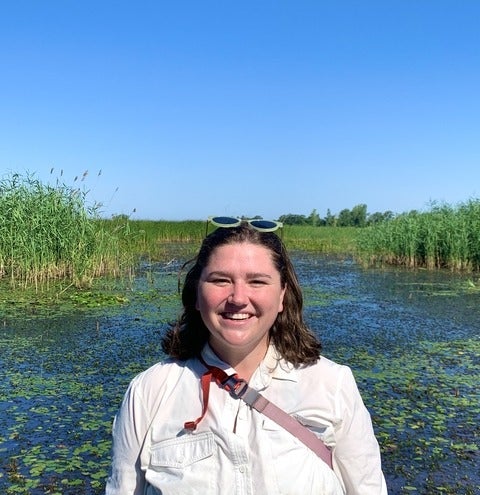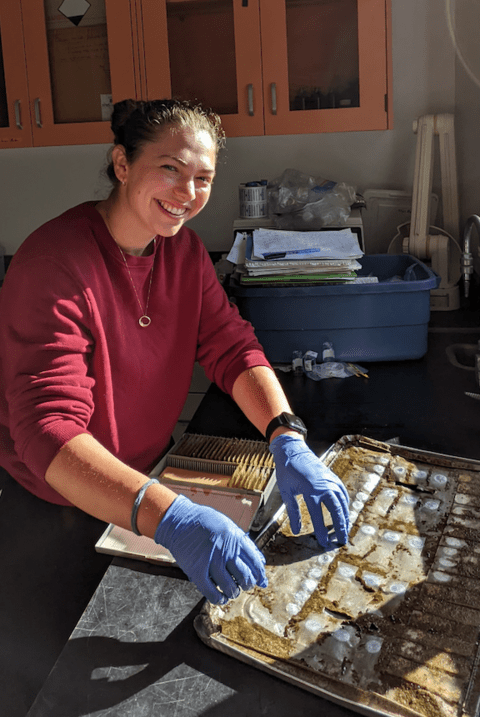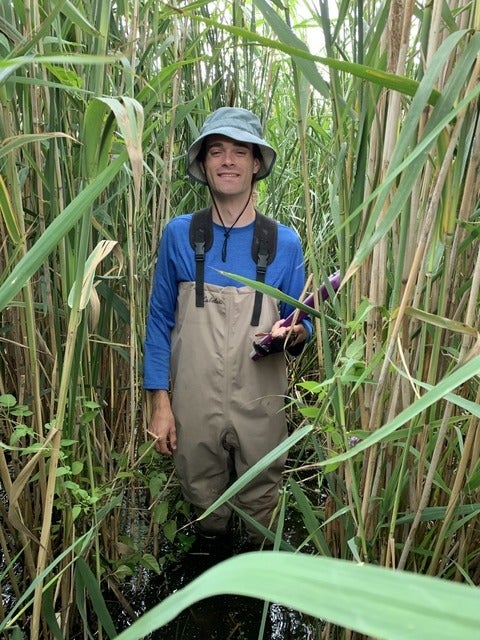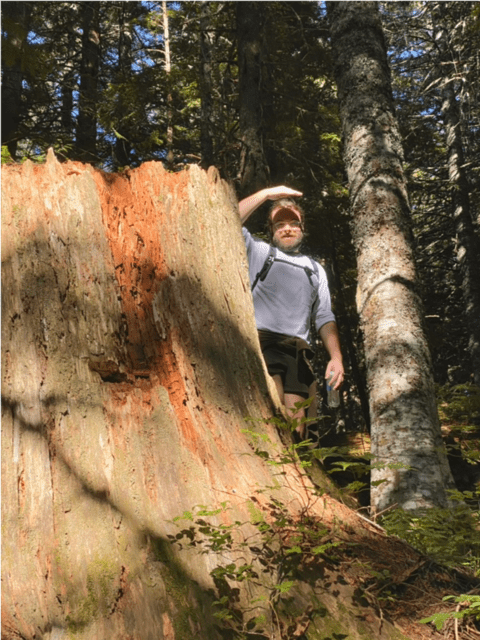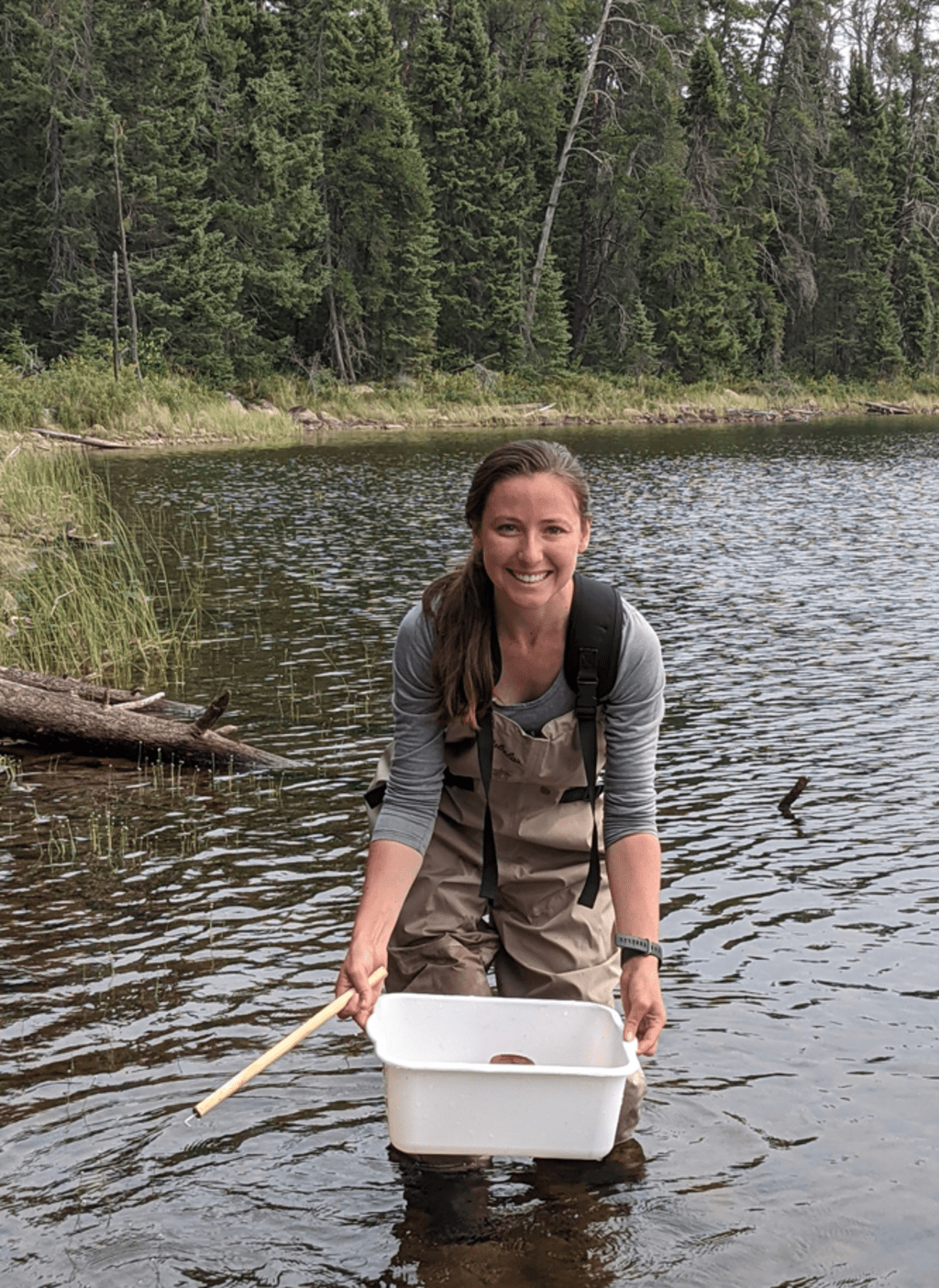Profiles
Filter by:
Claire Schon
Invasive Phragmites australis is a threat to wetland biodiversity and integrity across North America.
My project is the first in North America to evaluate the success of the insect-based Phragmites biological control program. My research fits into the broader Phragmites biocontrol pilot program. Biocontrol, as a practice, is a safe and effective method for controlling invasive species using the invasives natural enemies. I am interested in how and why Phragmites biocontrol can lead to native plants returning to Phragmites-invaded wetlands. My work will help inform the future wetland restoration efforts by advancing our understanding of this emerging technique for Phragmites control.
Aside from my research, I enjoy sharing my botany pictures through my botany Instagram (@poormansbotany), posting my biodiversity observations on iNaturalist (>2700 observations and counting!), serving on the Board of Directors for the Canadian Botanical Association, and running the Waterloo ecology network. Outside of all that, you can find me backcountry canoe camping, practicing my salsa dancing, and embroidering.
Émilie Montreuil Strub
Microplastics are one the most abundant forms of aquatic pollution in the world today, with studies indicating that every level of the food web interacts with this manmade contaminant. My research focuses on how freshwater invertebrates are affected by microplastics and how they, in turn, may affect microplastics in the environment.
Hayden Epp
I will be studying carbon storage and sequestration in The Meadoway, a restored meadow along a hydro corridor in Toronto. Specifically, I will be trying to determine the degree to which turfgrass-to-meadow restoration enhances carbon storage and sequestration. Before starting here as a student, I worked in the Waterloo Wetland Lab as a technician for most of the year after finishing my undergrad in Biology also at UW. Outside of this work, I enjoy birdwatching, reading, listening to music and playing board games among other things.
Jersey Fontz
My project involves using trait-based ecology to promote the active restoration of Long Point wetlands after the removal of invasive Phragmites australis. I’m hoping to help the native seed bank by creating and adding seeding prescriptions onto them to bolster their natural biotic resistance against P. australis.
Josh Pickering
Josh Pickering is a community ecologist interested in spatio-temporal trends and trophic interactions influencing bird communities. His current research focuses on evaluating long-term trends and response of breeding birds to adaptive white-tailed deer management at Long Point, Norfolk County, Ontario, Canada, following a prolonged period of deer overabundance.
It is well-known that overabundant white-tailed deer populations in North America have significant and often detrimental effects on ecosystems, yet few studies have examined the recovery of ecological communities - especially a breeding bird community - after a period of deer overabundance. It is the goal of this research to; assess trends in breeding bird species over time, evaluate community responses to changes in vegetation, local climate, and regional bird populations, and analyze regional differences to inform bird conservation efforts in Ontario.
This research at the University of Waterloo is supported by Birds Canada, Mitacs, an Ontario Graduate Scholarship (OGS), and a President's Graduate Scholarship.
Liahm Ruest
My project focuses on using eDNA metabardocing to better understand biodiversity in urban ecosystems. I focus on stormwater ponds and working with the Residential development Impact Scorecard for the Environment (RISE) to induce ecological best practices in urban developments.
Rachel McNamee
I am investigating the fate and effects of microplastics on freshwater algae. My research involves intensive field work during the spring and summer months at the Experimental Lakes Area (IISD-ELA), as part of a multi-disciplinary collaborative project known as PELAstics. Freshwater lakes are our greatest resources, yet they are currently inundated with plastic and microplastic pollution.

